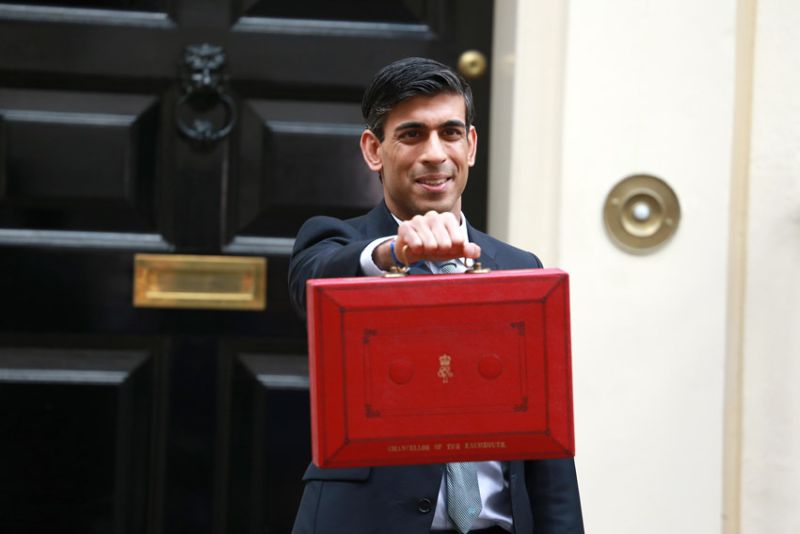04
November 2021
What does the Autumn budget mean for you?
Rishi Sunak’s autumn budget was announced last week, and as always, it has led to some analysis and speculation. Crucially, what we all want to know is who's going to benefit and who's going to be worse off. Questions like this are more poignant than ever as rising inflation, spiralling energy costs and a myriad of covid-related factors place a squeeze on household finances.
It can be a lot to unpack, so, as ever we’ve put together a quick guide to help you understand what the latest budget might mean for you.
The general overview
As was always expected, coronavirus and recovery post-pandemic featured heavily. This being said, the chancellor's tone was generally optimistic. Unemployment was lower than expected and the economic bounceback earlier this year also exceeded expectations due in part to a highly successful vaccine drive. With this in mind Sunak announced a series of spending initiatives which, while delivered positively, were caveated with the dampening effect of increasing inflation.
Universal credit changes
For those that work but still receive universal credit, there was some good news. Some rather considerable changes were to be made to the ‘taper’, which is the amount that someone on universal credit loses for every £1 they earn above £515 a month. This figure is to be cut from 63p to 55p. According to government calculations a typical mother of two would be a little more than £1000 per year better off. This change to the taper is scheduled to come into effect on the 1st of December and is expected to help around 2 million people. The decision comes just weeks after the government removed a £20 per week increase in universal credit to help households struggling during the pandemic.
As the taper only affects those working, people relying on universal credit alone will see no difference and will in fact be worse off than a couple of months ago thanks to the government's removal of the £20 uplift.
Alcohol prices
There was also a major shakeup in how alcohol is taxed with the previous system being axed after being described by the chancellor as “outdated, complex and full of historical anomalies”. Sunak’s new system is based solely on how strong the alcohol is, with a hope to put an end to cheap, high strength alcohol. Those who enjoy a day out of the pub will benefit from this, albeit not noticeably. The amount of duty on draught pints is to be cut by 5% which accounts to a saving of around 3p. Not exactly enough to get you down to your local in a hurry.
In fact, the news that many pubs will need to increase costs to deal with covid losses means that the chancellor's radical overhaul is likely to get lost in the wind.
Those who drink stronger alcohol will be the ones who feel the sting of the new system most keenly, with beverages over 11% seeing the sharpest increases.
Minimum wage increase
As with changes to the taper of universal credit, one of the chancellor's key budget points is an increase to the national minimum wage. Much of the focus was on what the government has called the national living wage which is actually the minimum wage for people over the age of 23. The changes however affect anyone who is being paid the minimum legal amount for their age or situation.
Over 23’s: From £8.91 to £9.50
21-22: From £8.36 to £9.18
18-20: From £6.56 to £6.83
Under 18: £4.62-£4.81
Apprecentices: £4.30 - £4.81
The 6.6% increase is just over double the current 2.9% rate of inflation but it will come into play in April 2022. So, exactly how much salaries are boosted in real terms will depend on how much the cost of living has increased by that point.
Fuel duty increase scrapped
As part of a series of initiatives to try and get people off the roads and using more renewable means of transport, there had been whispers of an increase on the duty of petrol. In the wake of supply chain issues which caused the cost of petrol to skyrocket, the proposal has been scrapped. So if you’re able to find a petrol station where the pumps aren’t dry you can rest assured you won’t be paying more tax on it anytime soon.
Air travel duty switchup
April 2023 will also see a switch up in how flights are taxed in this country. Sunak took aim at long-haul flights (journeys over 5,500 miles). An economy ticket to a long haul destination such as South America or Australia will cost an average of £91 extra under the new regulations. There will however be a decrease in the amount of duty for domestic air travel i.e. flights between England, Scotland, Northern Ireland and Wales. These journeys will see the tax halved, from an average of £13 per flight to £6.50.
Public sector pay freeze lifted
Public sector workers should also see pay increases over the next three years although exactly what the wage hikes will be hasn’t been made clear. Wages in the public sector were frozen during the pandemic as Sunak decreed that it was unfair for any salary boosts to be given, considering how stagnant wages were in the private sector during the pandemic. The unfreezing of wages will affect around five million people who are directly or indirectly employed by the government.





